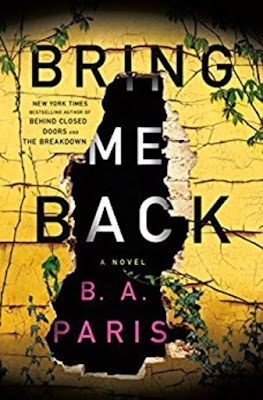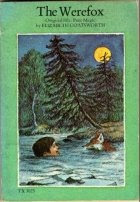32. The Wisdom of Father Brown by G.K. Chesterton
The Wisdom of Father Brown by G.K. Chesterton (US) - (Canada) - (Kindle) = FREE
Father Brown Mysteries, #2
Pages: 196
Ages: 18+
Finished: Feb. 9, 2013
First Published: 1914
Publisher: A Public Domain Book
Interests: Catholic, mystery, crime
Rating: 3.5/5
First sentence: "The consulting-rooms of Dr. Orion Hood, the eminent criminologist and specialist in certain moral disorders, lay along the sea-front at Scarborough, in a series of very large and well-lighted french windows, which showed the North Sea like one endless outer wall of Blue-green marble."
Publisher's Summary: "This is the second book of short stories about G. K. Chesterton’s fictional detective. Father Brown is a short, nondescript Catholic Priest with shapeless clothes and a large umbrella who has an uncanny insight into human evil. His methods, unlike those of his near contemporary Sherlock Holmes, although based on observation of details often unnoticed by others, tended to be intuitive rather than deductive. Although clearly devout, he always emphasizes rationality: despite his religiousness and his belief in God and miracles, he manages to see the perfectly ordinary, natural explanation of the problem. He is a devout, educated and "civilized" clergyman, who is totally familiar with contemporary and secular thought and behaviour. His character was thought to be based on Father John O’Connor, a parish priest in Bradford, Yorkshire."
Acquired: Purchased the free kindle edition.
Reason for Reading: Next in the series.
This second collection of Fr. Brown lacks the appeal of the first collection. I enjoyed some stories, but found many to be disappointing in that they were short of being actual mysteries in the sense that I had expected them to be. Sometimes crimes were not really even committed and Fr. Brown was presented with more of a puzzle or conundrum to solve. When there is a crime the story will finish with Brown's solution and the police or any legal justice is hardly called to hand, something I'm finding difficult to get used to with these stories from both volumes so far. These stories are incredibly less religious in nature than the first volume though they all do carry a religious moral ethic as that is the nature of Fr. Brown's sleuthing methods. I was disappointed that Flambeau was rarely seen in this collection as I had come to consider him Brown's sidekick in the first volume but at least the narration has settled it's tone from the first and is written purely in the third person throughout these stories. An acceptable and entertaining read but nowhere near as good as "The Innocence of Father Brown". Chesterton, in real life, had still not converted to Catholicism at the point when these stories were published and I am interested to see if there will be any noticeable difference in the next volume which was published four years after his conversion.
1. The Absence of Mr. Glass - What a fantastic story to start this collection! Not a mystery though by any means, more of a puzzle, a conundrum. Fr. Brown goes to a detective to enlist his services to help determine whether a young man is suitable to marry a young woman known to him. Her mother is dead-set against the marriage as the suitor has a bit of mystery surrounding him, yet everyone else concerned is happy for the young lovers. As the party descends upon young Mr. Todhunter's rooms, they have need to break down the door upon which they find him bound and gagged in the corner. The detective then takes the disarray of the room into account and tells the nefarious doings of the young man and the mystery of one Mr. Glass. When he is finished Fr. Brown laughs and from the clues tells all the truth of what has happened and whether Mr. Todhunter is a suitable suitor or not. Very clever and a delight to read! 5/5
2. The Paradise of Thieves - I don't have a lot to say on this one. I've been busy and couldn't get my mind onto it; whether it was me or the story I can't say for sure. However, it wasn't terribly entertaining and I never had a great sense of what was going on or cared for that matter. It involved a kidnapping. 3/5
3. The Duel of Dr. Hirsch - Another story that didn't quite satisfy, very political. Early on reference is made to another case which I ignored but repeated mention of this case made me google it to see if it was a true crime and indeed it was happening about 20 years prior to the publishing of this book. Perhaps if one were up on these current events at the time the story would have been more enjoyable? However, it wasn't pertinent to the case presented here in its outcome and I was rather disappointed to have figured out the twist before the end. This story does at least bring Flambeau back into the picture. Hoping the next story will be better. 2.5/5
4. The Man in the Passage - Finally, a proper mystery! Fr. Brown is in fine form in this story. He arrives backstage at the Apollo Theatre where the star actress has called him to attend to her. There he finds her in the company of four others: two suitors, her leading man and her male servant. Miss Rome is obviously anxious to speak to Fr. and uses her charms to clear the room. As she sees one man out of the building she is heard walking down the passage to watch his progress down the street then a scream and kerfuffle is heard and the two suitors are heard exclaiming about seeing a man in the passage. Poor Miss Rome is found dead, the leading man is obviously arrested as the killer but it is upon the witness stand that Fr. Brown unravels the simple events of that evening proclaiming whom both the man in the passage and the killer each were. I liked that the killer received their just rewards in this case, even if it was in a round about way. (4/5)
5. The Mistake of the Machine - Well this is a funny tale involving, in a round about way, a wealthy man who holds obscurely themed parties each year. Starting off with a police detective telling Fr. Brown of a murder the previous evening of a warden after a prisoner escaped and his subsequent arrest of the culprit, a shabbily dressed man running across a nearby field. His guilt is all but proven to the detective by the use of his highly prized "psychometric" machine which measures the variations in one's pulse and thus can tell if a person is under stress and agitated during questioning. Fr. Brown is quite witty with his observations about the machine vs its operator and quite blows apart the detective's story. Though the detective has indeed caught a criminal it is not the one he thinks he has and Fr. Brown solves both the identity of the apprehended man and the true perpetrator of the prison escape and murder of the warden. A clever tale with an ending that surprised me. (4/5)
6. The Head of Caesar - Not quite a proper mystery in the ordinary sense but a crime and a puzzle that Fr. Brown wittily solves again. I really enjoyed this story and it is unique in it's telling. Flambeau is present at the beginning and end but doesn't play a major role. Most of the story takes place in a pub as a woman confesses her entire story to Fr. while the rest plays out at the scene of the crime where Brown wraps up the final pieces. A story of its time but good. (5/5)
7. The Purple Wig - Another fine puzzle mystery though no actual crime is committed again. This time it's more of a moral conundrum and this case takes on the British aristocracy and class system of the early 1900s. A journalist happens upon a table outside a pub finding three men, a doctor, a priest and an otherwise respectable gentleman other than his purplish wig. Here they converse and the topic turns to the old tales and curse of the Dukes of Exmoor. I won't say more but a twist in the middle turns into a double twist at the end for a fun story. Though again, not really a mystery. (4/5)
8. The Perishing of the Pendragons - The last few stories have been following a similar format and this one is no different. Brown and Flambeau are on a small holiday for Brown's health; he is suffering depression. They are taking a river cruise to the Pendragon estates and regaled with the family's legend which includes the mysterious burning tower. Brown just happens to have a hose in hand when the tower really starts to burn and the Father unravels the legend of yore and the current use of the legend. Again not exactly what I consider a mystery (ie no crime to solve) but Fr. does stop a crime from being committed and solve another puzzle. Not as entertaining as others but ok. Finally some good Brown/Flambeau interaction which is sorely lacking in this collection. (3/5)
9. The God of the Gongs - I'm the last person to judge a story based on modern society's views on certain elements such as race and sexism and always view a story from within the time period it was written. However, I could find no redeeming value in this story. To begin with it was a less than entertaining mystery and blatantly racist against the "negro" race. The n-word was used frequently and flippantly. I admit my disgust with the racism and rampant blatant derogatory references made me hurry and get this one over with; I really could not find that it was even trying to be positive within the constraints of the time it was written. In my opinion, this is a racist story even for the time period in which it was written. (0/5)
10. The Salad of Colonel Cray - Finally a genuine mystery and a fun one at that! A burglary takes place and only condiments seem to have been stolen. But when someone is poisoned it is Fr. Brown who happens to have the simple remedy to the rare poison just in the nick of time. (4/5)
11. The Strange Crime of John Boulnois - Rumours of a woman having an affair with a man abound and when he is stabbed and publicly found with his dying breath accuses the scorned husband John Boulnois the crime appears to be fait au complete. However, the priest on hand, Fr. Brown, takes one look around and knows all is not as it appears. Clever tale; the motives are old-fashionably unbelievable but nonetheless a good story. (4/5)
12. The Fairy Tale of Father Brown - For the final tale in this book it is nice to have Flambeau return. But once again this is not really a crime or a mystery as one expects. As in a previous story we are presented with a mysterious death from the past. Flambeau recounts the details as they were given him by one of the investigating detectives at the time. A prince had been found dead with a bullet in his head and yet there had been no shot fired and only a bullet mark found upon his cravat. After hearing the details of the strange tale, Fr. Brown is able to tell his version of what most likely happened; who the guilty party was and who it wasn't are quite interesting to say the least. A good story to end the volume. (4/5)



eralstitni Jennifer Williams https://wakelet.com/wake/Dp4bH26r2xl3m3WKsq66E
ReplyDeleteconmathatu